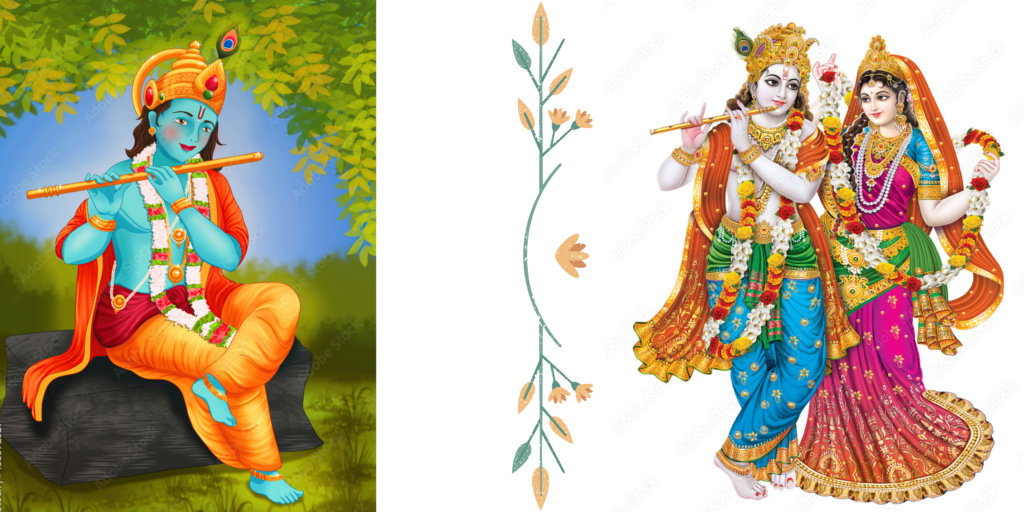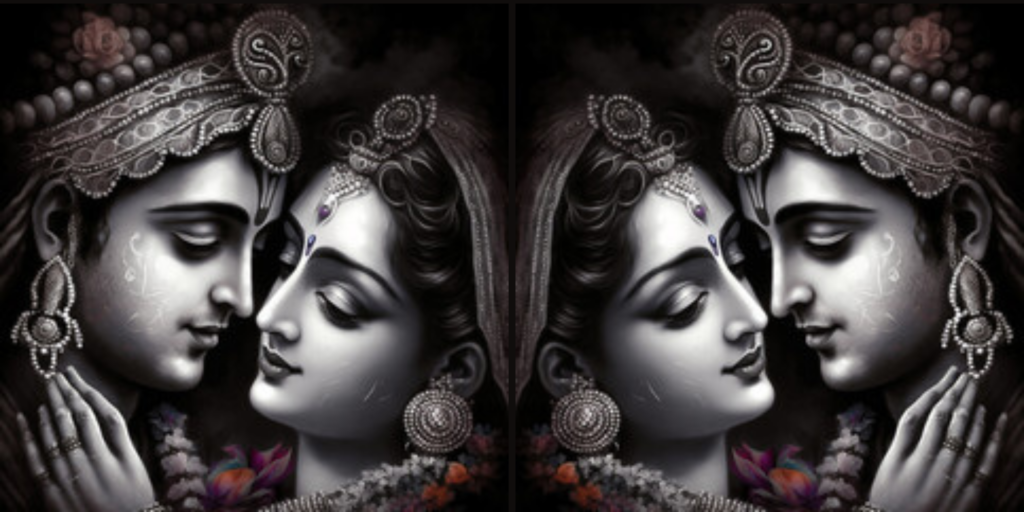krishna 10 avatar name
The Fascinating Journey of krishna 10 avatar name: Exploring Their Names and Significance
Krishna 10 Avatar Name
After reading thsi article you will know that lord krishna 10 avatar name. Krishna’s ten avatars, also known as the Dashavatara, hold a special place in Hindu mythology and spirituality. Each avatar represents a different facet of the divine and carries a unique message for humanity. Let’s embark on a journey to discover the names and significance of these ten avatars of Lord Krishna.

Introduction: The Divine Manifestations of Krishna
In Hinduism, Lord Vishnu incarnates in various forms to restore dharma (righteousness) whenever it is threatened. These incarnations, or avatars, are manifestations of his divine energy. Lord Krishna, an incarnation of Vishnu, has ten avatars that span different epochs and stories. Each avatar reflects the divine purpose and conveys valuable lessons.
Matsya Avatar: The Fish Incarnation
In the Matsya Avatar, Lord Vishnu took the form of a fish. The story revolves around the great deluge and the rescue of the ancient scriptures by the fish. The name “Matsya” translates to “fish” in Sanskrit, symbolizing protection and guidance even in the midst of chaos.
Kurma Avatar: The Tortoise Incarnation
The Kurma Avatar saw Lord Vishnu incarnate as a tortoise to support Mount Mandara during the churning of the ocean. The name “Kurma” means “tortoise,” representing stability and strength in the face of challenges.
Varaha Avatar: The Boar Incarnation
In the Varaha Avatar, Lord Vishnu assumed the form of a boar to rescue the Earth goddess, Bhudevi, from the depths of the ocean. “Varaha” signifies “boar,” symbolizing protection and the divine’s willingness to dive into the depths for the well-being of the universe.
Narasimha Avatar: The Man-Lion Incarnation
The Narasimha Avatar portrays Lord Vishnu as a half-man, half-lion being. He came to protect his devotee Prahlada and restore dharma by defeating the demon king Hiranyakashipu. “Narasimha” represents the fusion of human and animal qualities, signifying the balance of power and compassion.
Vamana Avatar: The Dwarf Incarnation
Lord Vishnu’s Vamana Avatar appeared as a dwarf Brahmin to humble the demon king Bali. “Vamana” means “dwarf,” symbolizing humility and the divine’s ability to outwit even the mightiest with subtlety.
Parashurama Avatar: The Warrior with an Axe
Parashurama, the sixth avatar, was a warrior with an axe. He came to rid the world of corrupt Kshatriyas and restore dharma. His name “Parashurama” signifies his weapon, highlighting his role as a protector and reestablisher of righteousness.
Rama Avatar: The Prince of Ayodhya
The Rama Avatar features Lord Vishnu as the virtuous prince who embarked on a quest to rescue his wife, Sita, from the demon king Ravana. “Rama” conveys the qualities of an ideal ruler, portraying righteousness and devotion.
Krishna Avatar: The Divine Cowherd
Krishna, the eighth avatar, is renowned for his role in the Mahabharata and the Bhagavad Gita. His name “Krishna” means “black” or “dark,” symbolizing his all-encompassing nature. He stands as a divine guide and a source of wisdom for humanity.

Buddha Avatar: The Enlightened Sage
In the Buddha Avatar, Lord Vishnu incarnated as Siddhartha Gautama to spread enlightenment and compassion. “Buddha” means “the enlightened one,” emphasizing the pursuit of spiritual knowledge and harmony.
Kalki Avatar: The Future Warrior
The final avatar, Kalki, is yet to come. Kalki is prophesied to appear in the future on a white horse, wielding a sword to restore righteousness in a time of darkness. The name “Kalki” signifies “destroyer of filth,” representing purification and renewal.
FAQs
Q: Can you explain the concept of avatars in Hinduism?
A: Certainly! Avatars are divine incarnations in Hinduism, where a deity manifests in a specific form to fulfill a particular purpose and restore cosmic order.
Q: Why does Lord Vishnu incarnate in different forms?
A: Lord Vishnu incarnates to maintain cosmic balance, protect the righteous, and vanquish the forces of evil whenever dharma is threatened.
Q: How do these avatars relate to Lord Krishna?
A: Lord Krishna is the eighth avatar of Vishnu, and his avatars are known as the Dashavatara, showcasing various roles and messages.
Q: What is the significance of the name “Krishna”?
A: The name “Krishna” means “black” or “dark” and signifies his all-encompassing nature, representing both his divinity and his connection to humanity.
Q: How does Kalki Avatar differ from the other avatars?
A: Kalki Avatar is unique as it is prophesied to appear in the future to restore righteousness, making it distinct from the other historical avatars.
Q: What can we learn from Krishna’s avatars?
A: Each avatar carries a message of dharma, righteousness, and the importance of staying true to one’s principles, even in challenging times.
Q: krishna 10 avatar name ?
Krishna’s 10 avatar names encompass a diverse range of incarnations, each carrying a unique message and purpose. From the Matsya Avatar as a fish to the future warrior Kalki, these avatars embody timeless teachings and lessons, enriching Hindu mythology with their profound significance.

Conclusion: Embracing the Divine Lessons
I hope after reading this article you know that krishna 10 avatar name. The journey through Krishna’s ten avatars offers a profound insight into the multifaceted nature of the divine and its eternal connection with humanity. From protecting righteousness to spreading wisdom and compassion, each avatar encapsulates a unique message that continues to guide and inspire us today.
As we delve into these enchanting stories, we find not only stories of divine heroism but also valuable lessons for leading a meaningful and righteous life.
Read More – Why Radha is Called kishori






LEAVE A COMMENT